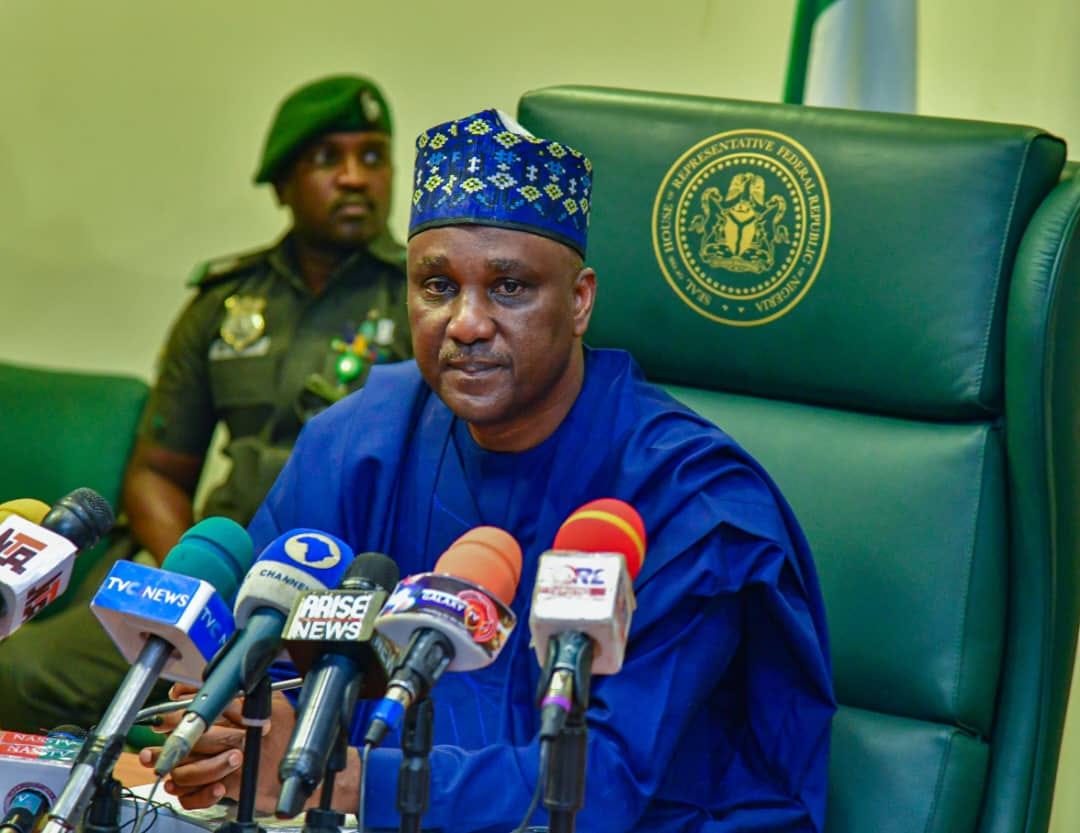561
By Tracy Moses
The Speaker of the House of Representatives, Abbas Tajudeen, has expressed concern over Nigeria’s ballooning debt stock, urging African legislatures to intensify scrutiny of public borrowing and debt management practices.
Speaking in Abuja on Monday at the opening of the 11th Annual Conference and General Assembly of the West Africa Association of Public Accounts Committees (WAAPAC), hosted by the House Committee on Public Accounts with support from development partners, Abbas warned that Nigeria’s fiscal health is under increasing strain.
According to him, the nation’s public debt rose to ₦149.39 trillion (about US$97 billion) in the first quarter of 2025, up from ₦121.7 trillion in 2024. He noted that the debt-to-GDP ratio now stands at 52 percent, well above the 40 percent legal benchmark.
“This breach of the statutory ceiling underscores the pressure on our fiscal sustainability,” the Speaker cautioned. “It is a clear reminder of the urgent need for effective oversight, transparency in borrowing, and accountability to ensure that every naira borrowed yields measurable social and economic returns.”
Abbas stressed that while borrowing can stimulate growth if prudently managed, unchecked debt accumulation endangers economic stability and mortgages the future of younger generations. He described parliamentary oversight of debt as both “a constitutional obligation and a moral duty.”
Looking beyond Nigeria, the Speaker pointed out that Africa’s debt burden reached US$1.8 trillion in 2022, with projections showing external debt crossing US$1 trillion by 2023. He lamented that many African countries now allocate more resources to servicing debt than to healthcare and other essential sectors.
Breaking down Africa’s debt composition, Abbas revealed that Western private creditors account for 35 percent, multilateral lenders 39 percent, bilateral creditors 13 percent, while Chinese loans stand at only 12 percent, contrary to widespread perception.
“The steep cost of commercial loans and the repayment obligations in foreign currencies expose African economies to severe external shocks,” he explained. “If Africa must move from fragility to resilience, we need to rethink reliance on external finance, boost intra-African trade, and expand domestic resource mobilization.”
As part of Nigeria’s response, Abbas disclosed that the country will spearhead the establishment of a West African Parliamentary Debt Oversight Framework under WAAPAC. The initiative, he said, aims to standardize debt reporting across the sub-region, enhance transparency, and equip parliaments with real-time information for proper monitoring of borrowing activities.
He further announced plans for a regional capacity-building scheme for Public Accounts and Finance Committees, to be jointly driven by Nigeria, WAAPAC, and development partners. The programme will focus on debt sustainability tools, fiscal risk analysis, and oversight of complex financing instruments.
Highlighting the House’s Open Parliament policy in place since 2023, Abbas insisted that borrowing plans must undergo public hearings and debt reports should be simplified for citizens’ access. “Oversight works best when it combines parliamentary scrutiny with people’s participation,” he said.
The Speaker reaffirmed the lower chamber’s dedication to accountability in public finance, stressing that loans must be channeled to infrastructure, healthcare, education, and job creation, not to waste or corruption.
He commended WAAPAC for advancing peer learning and accountability among parliaments since its inception in 2009, describing the body as “a symbol of regional cooperation and solidarity.”
Declaring the conference open, Abbas urged participants to develop actionable strategies for sustainable debt management.
“The communiqués and recommendations from this meeting can reshape public financial governance in Africa and reinforce transparency in Nigeria,” he concluded.



